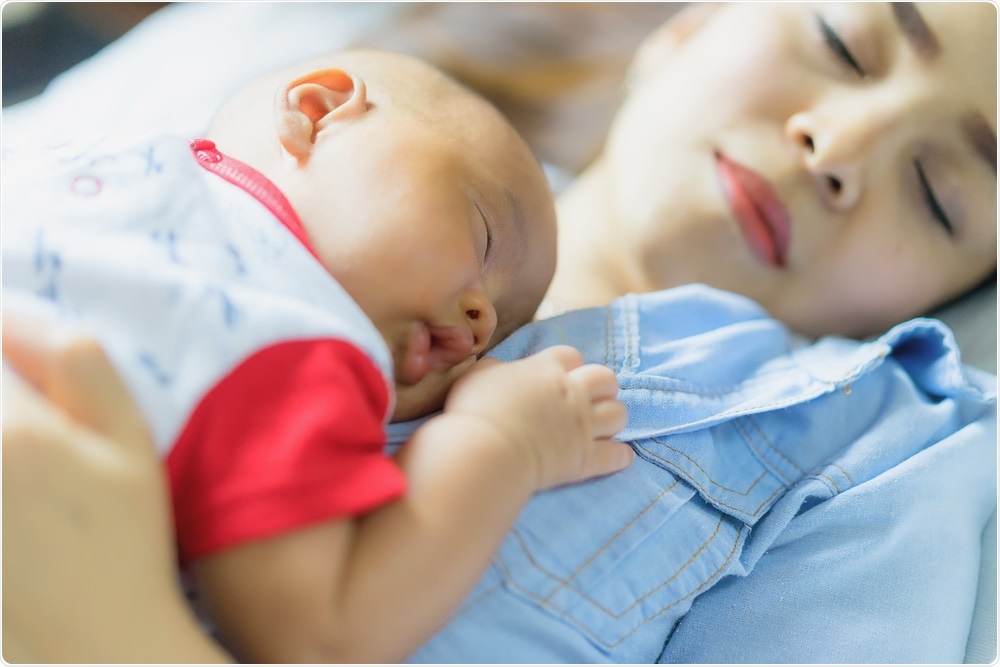According to a survey of 8551 people, 40 percent of parents are not following safe co-sleeping practices with their babies, and this is significantly increasing the risk of Sudden Infant Death Syndrome (SIDS).
 Sirirat | Shutterstock
Sirirat | Shutterstock
The survey was carried out by charity, the Lullaby Trust to mark “Safer Sleep Week”. The charity discovered that around 76 percent of parents co-sleep with their babies at some point in time. Of these parents, around 40 percent admitted to sleeping in dangerous places with their babies such as on the sofa, smoking around them or sleeping next to them after consuming alcohol. Such circumstances put babies at a serious risk of SIDS, say experts.
Sleeping with a baby on the arm chair or on the sofa is one of the commonest and most preventable risk factors. The charity noted that 25 percent of the parents who took the poll slept in such manners with their babies on more than one occasion.
Sleeping with a baby on the sofa or arm chair may raise the risk of SIDS by 50 times says the report. They found that in one third of the cases – around 33 percent – the co-sleeping was accidental and unplanned. This means that the adult with the baby might have dozed off in a risky situation for the baby.
The survey also showed that around 12 percent of the participants in the study smoke while in bed with their babies and 9 percent admit to have taken alcohol before sleeping with their babies. Both of these as well as taking drugs can raise the risk of SIDS in the babies. Statistics reveal that annually around 133 babies die of SIDS due to co-sleeping conditions.
Co-sleeping needs to be discussed with all families. We know from talking to parents that if they are told not to co-sleep they will then feel they cannot discuss what actually happens.
As a result they will not get important advice on how to co-sleep more safely. It is a reality that even if parents do not plan to co-sleep, many still fall asleep with their babies unintentionally.
Babies can and do die in high risk co-sleeping situations. If given the right advice, parents can prepare for planned and unplanned co-sleeping that will help to mitigate those risks and reduce the chance of SIDS”.
Jenny Ward, Acting CEO of The Lullaby Trust
The Lullaby Trust tweeted, “Tomorrow marks the start of #safersleepweek, our annual campaign to raise awareness of SIDS and safer sleep. Keep an eye on our Facebook and Twitter throughout the week to see what we’ve got planned, and follow the hashtag to spread the word!”
The charity is collaborating with the Public Health England (PHE), UNICEF UK Baby Friendly Initiative and Basis to develop guidelines for parents and health care providers to promote safer sleeping in babies. They are promoting open and non-judgemental conversations with parents about sleeping habits, co-sleeping and other risk factors.
One of the key advises is to ensure space around the baby clear of pillows and duvets. The advice is to allow the baby sleep in its back and no pets or other siblings and children should be allowed to sleep with the baby. A baby should not be left alone on an adult bed or on the sofa or an arm chair.
Co-sleeping is an absolute no for babies born prematurely or before 37 weeks of pregnancy or babies born with a body weight of less than 2.5 kg (5½ lbs).
Source:
https://www.lullabytrust.org.uk/safer-sleep-advice/co-sleeping/